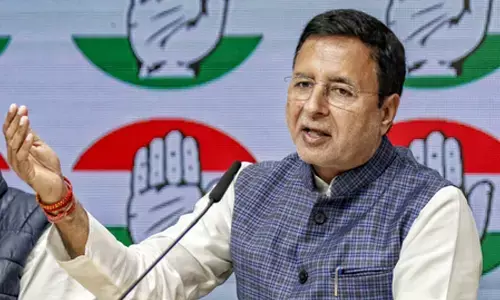Mahatma, practitioner of non-violence

Mahatma, practitioner of non-violence, Sardar Vallabhbhai Patel, Mahatma Gandhi, Rabindranath. An accomplished Barrister whose appearance was in three-piece suit, befitting his status and knowledge, was transformed into the one, resembling the poorest in the Indian society.
After Gandhi became Barrister and started practice in South Africa, not only he commanded lucrative practice in that country, but also earned good reputation, particularly, in the Indian community. Anybody in his place would have chosen to scale further heights in the profession, or to consolidate his position in the society in a more broad-based manner. However, the plight of India under British rule has subjugated all other priorities and temptations, and made him to shift to India, once for all.
The sacrifice made by him was so great, that eminent personalities who were deep in the freedom movement, such as Bala Gangadhar Tilak, Sardar Vallabhbhai Patel have already accepted him as their leader and worked under his guidance. Observing the method of struggle undertaken by the Gandhiji, the noble laureate, Rabindranath Tagore expressed his admiration towards him by calling him ‘Mahatma’, which has since become inseparable with his name.
An accomplished Barrister whose appearance was in three-piece suit, befitting his status and knowledge, was transformed into the one, resembling the poorest in the Indian society.
The transformation was almost akin to the one of the moving of the Buddha from royal life to his spiritual path. Gandhiji wanted to be the one among the people not only in thinking and practices but also in appearance. He commanded more respect with his scantly covered body than what he would have with his luxurious apparel and life-style.
One of the greatest scientists Albert Einstein remarked, “Generations to come, it may well be, will scarce believe that such a man as this one ever in flesh and blood walked upon this Earth”.
Dr Sarvepalli Radhakrishnan, the President of India and an accomplished philosopher of global reputation had this to say about Mahatma. “In Gandhi, we have that rarest kind of religious man who could face a fanatical patriotic resemble and say that he should, if he had to, sacrifice India, to the truth”.
The concept of non-violence practiced by Gandhiji was not just the antithesis of violence or the opposite of negative tendencies exhibited by people towards others. One cannot put it better than what Dr Rajendra Prasad, the first President of India, did. He said, “Gandhiji believed that non-violence could not be established and violence abjured till the causes which led to violence and made non-violence difficult of application were removed. We know that all conflicts in this world arise because of conflicting desires of individuals and these desires relate to something material, something external, something which the other man also wants, but which cannot be made available to or shared by both…
In other words, Gandhiji insisted on a limitation of our physical and material needs. Again, he felt that in a society which is based primarily on a desire to extend and expand one’s needs, violence cannot be avoided. He, therefore, wanted a society in which the principal factor would not be the multiplication of wants or the means for supplying these wants in the quickest manner possible, but a society which would ensure to all what is absolutely necessary and at the same time not create conditions which cannot but end in competition and, ultimately, in violence”.
Dr Rajendra Prasad, said at another place: “It is, therefore, necessary to realise that what we have assumed as axiomatic truth, namely, that increase in material prosperity also means the attainment of happiness, is neither quite correct nor so self-evident. This assumption is true only up to a certain limit and the more we transgress this limit the more remote become our chances of being happy. This limit has to be fixed by a man himself. This is undoubtedly beset with countless difficulties, but I do think that it is not altogether impossible for man to achieve happiness without the usual paraphernalia which passes for his everyday necessities. This is exactly what is meant by the adage, ‘simple living and high thinking’. It was by practicing this truth that Mahatma Gandhi could enjoy that happiness which a humble follower of his is unable to have even in the palatial Rashtrapati Bhavan.” I believe that what made Mahatma Gandhi to firmly believe in Ahimsa and non-violence and practice them throughout his life was his deep understanding of the ancient Indian culture and his resolve to practice them without giving any scope for alibis.
Without proclaiming to be a communist or socialist, or capitalist, Gandhiji led a life, which was more sacrosanct than those theories. One can only say that there are many ascetics, having their abodes in Himalayas and other places, but Gandhiji was a near ascetic, but in full action for the liberation of his country. His love for the country and countrymen was such that he rated everything after it. When the days of freedom were nearing, an able administrator shared with him, the idea that India, which becomes free at once, may not be able to administer itself well for want of experienced persons. The reply given by Mahatma was that self-governance is better than good governance.
Gandhiji had either followers or non-followers but not enemies. Even those who did not follow him did so even by paying utmost respect to his personality. It is said that Nathuram Godse is said to have saluted him before he pressed the trigger. The respect, which Gandhiji commanded from the persons around him, was on account of the fact that he did not see any evil in others. Fraternity is a value, which Gandhiji cherished and the constituent assembly which comprised of most of his followers have ensured that it is incorporated as one of the tenets in the Preamble to our Constitution.
I have touched a small facet of Mahatma Gandhi with the limited knowledge and perspective I have, being fully conscious of my, not being conversant with any subject to the level of satisfaction, let alone perfection and that it is the fact of being less ignorant in the field of law that has brought me before you. What more proof you need than the one of Gandhiji, who was able to bring the mighty British Empire to his terms, even while being without any possession, clothing on his body included. His strength was his commitment to values.
(The writer is the sitting judge of Andhra Pradesh High Court)











